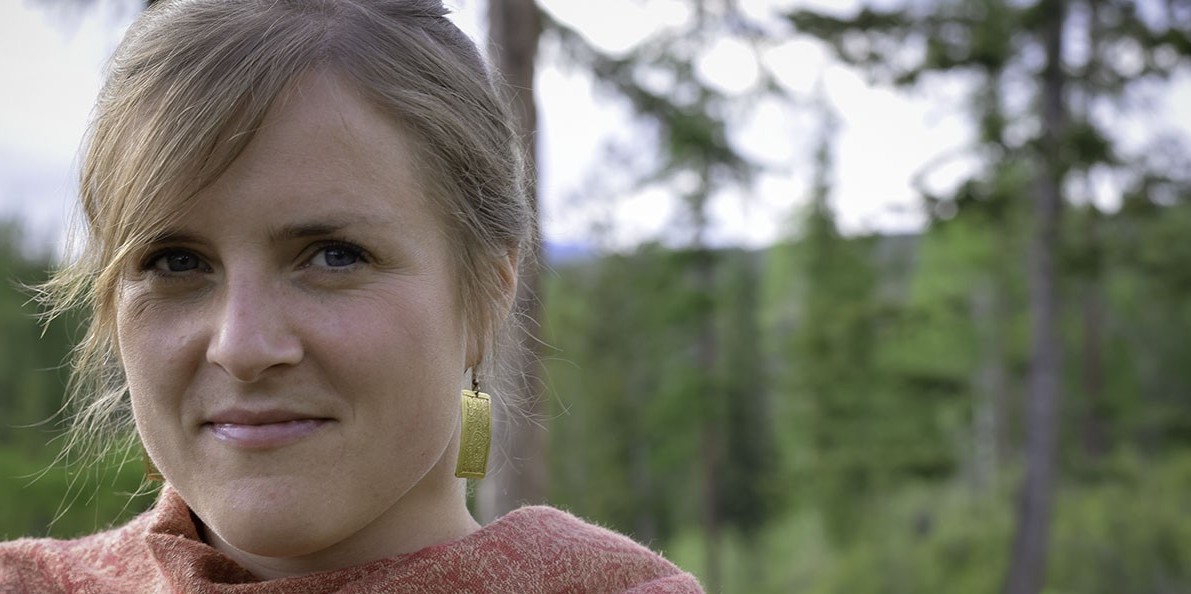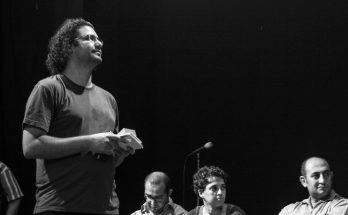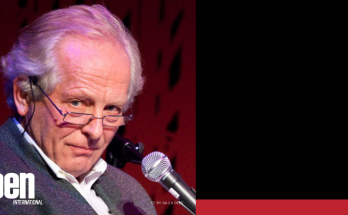PEN Canada nominates Nadine Sander-Green for the 2015 PEN International New Voices Award
PEN Canada is pleased to announce short-story writer Nadine Sander-Green as the 2015 Canadian nominee for the PEN International New Voices Award. Many thanks to jurors Bronwyn Drainie, Mark Medley, and Becky Toyne, and to the talented writers who sent in their submissions.
The New Voices Award, now in its third year, aims to encourage new writing and offer young writers a platform for their work. The winning writer, selected from the submissions of PEN centres around the world, will be published by PEN International and receive a $1,000 prize. A jury at PEN International will review submissions, including Sander-Green’s “Teeny,” and release a longlist later this summer. We wish Sander-Green the best of luck!
PEN Canada got to know our nominee with a brief Q&A earlier this week.
Five questions for new voices nominee, Nadine Sander-Green
PEN Canada (PC): The book you’re writing is memoir, but the stories seem to read like fiction. Do you draw a rigid line between fiction and non-fiction, or do you like them together? Are you really, for instance, a champion arm wrestler?
Nadine Sander-Green (NSG): I write memoir because there is so much rich material to pull from everyday life. It’s the most honest way I can tell a story. I do, though, think the line between fiction and non-fiction is hazy. I like it that way. I take some scenario that kicked me in the gut, expand it and shape it into a story. The setting, characters and themes are real. Maybe the tablecloth is white instead of blue, and of course some of the dialogue is constructed, but I don’t think that matters and I try not to worry about it. I’m just hoping to tell a story that makes the reader feel something.
I think, in Canada, we’re still shaping the boundaries of the genre, especially when it comes to memoir. Some people think in order to write memoir you have to have an incredible tale to tell. I’m in the other camp. I think you just have to connect with what hurts in your life, and know how to write a strong sentence. And yes, I am a champion arm wrestler; in the Yukon, at least.
PC: You seem to enjoy and embrace nature rather than endure it. Has that always been the case? Where would you place yourself in Margaret Atwood’s theory of Canadian literature?
NSG: I grew up in Kimberley, a little mountain town in southeast British Columbia. My parents are biologists. Family vacations were all about “bagging peaks” (hiking to the top of mountains) and driving laps of the provincial park campground to snag the best site. In school we learned how to gather kindling, start a fire and get pot of water to boil in less than five minutes. Of course, I rebelled against this lifestyle for a few years, refusing to hike or ski and wearing yellow eye shadow up to my eyebrows. But it seems like we always boomerang back. I love being in the wild now; I rely on it to feel alive.
From what I understand, Atwood wrote the book Survival to try to figure out what was Canadian about Canadian literature. She found our country’s writing wasn’t about getting rich or famous, or discovering interesting things about life. It was about survival, often against nature. She found characters clinging to the edge of cliffs by their fingernails. I like to think my characters aren’t in such a battle with nature. I like to think they’re a little more in tune. The stories, which are often set in my hometown, are less about survival and more about how rugged landscapes shape a character.
PC: Has your journalism influenced your creative writing, or vice-versa?
NSG: I fell into journalism right after graduating university, working at small newspapers in B.C. and the Yukon. I decided to be a reporter because I wanted to write lovely sentences and I thought I needed a nine-to-five job, which in retrospect was a bit naive. Reporting didn’t quite work for me. I was always nervous to pick up the phone and call a source. Was I bothering them? Did they like me? There was a certain ruthlessness, or grit, that I felt I was missing in order to grow in that line of work.
I’m not a reporter anymore, but I am still deeply curious. I want to know everything about the people I meet: where they grew up, their deepest fear, what they plan on naming their first-born child. I am so grateful to have settled into creative writing, where I’ve learned to harness that curiosity and use it in a way that feels right.
The one thing I miss about journalism is introducing myself at parties. It’s so easy to say you’re a reporter. It’s a great conversation starter. Now when I introduce myself, I go red in the face and mumble something about trying to write a memoir. I think that’s something a lot of new writers struggle with, believing they are worthy of calling themselves a “writer.”
PC: Are you planning to move on from short stories and essays to novels, or are you happy working within the constraints of the form? Has Alice Munro’s Nobel prize made it any easier to get collections of short stories published?
NSG: I love short stories and essays. I love their power, and how they force the writer to create such tight prose. There isn’t enough room in a short story for a sloppy sentence. I love how you can read an entire story in one sitting, but the feeling that story evokes can stay with you for a weeks. A good short story seems to become part of you, and how you see the world.
I don’t know if it’s easier now to get collections of short stories published. I really hope so. I have noticed a recent trend in Canadian novelists going back to the short story, like Lynne Coady’s Hellgoing and Heather O’Neill’s The Daydream of Angels, which is cool.
PC: Who has influenced and/or inspired you? If you could have written one Canadian book from the last 20 years, which one would it be? Why?
NSG: I am most inspired by a writer’s voice, maybe because it’s such a tricky thing to pin down. It’s easy to copy a writer’s sentence diction or punctuation, but not as easy to mimic their voice. Voice is what makes a story worthwhile. It’s what makes a story take life.
I can’t imagine having written someone else’s book, but I am deeply influenced by so many Canadian writers. Miriam Toews is the queen of balancing humour and heartbreak. She is so insanely good. I love David Bergen for his quiet confidence. He seems to have mastered the internal world of characters. I admire the way Sheila Heti tackles memoir. This year I’ve been blown away by Carrie Snyder’s novel Girl Runner, Eliza Robertson’s short story collection Wallflowers, and K.D. Miller’s linked stories, All Saints.
Nadine Sander-Green is working on her first collection of stories. She grew up in Kimberley, B.C. and has spent the past decade living throughout British Columbia and the Yukon. She has a BA in Creative Writing from the University of Victoria and is moving to Toronto to start her MFA at the University of Guelph this fall.
Photo credit: Chelsea Gibson




